Please fill out the following information, and RRFC Admissions will contact you to discuss our program offerings:
Issue #121
by L. Swift and Jeff McQ
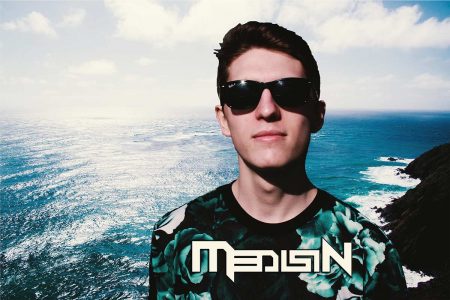 If there’s one thing aspiring music artists could learn from Recording Connection grad Bradley Bingham, it’s how to commit fully to the dream. When we caught up with him recently, Bradley was making final preparations for the release of his debut EP (under his stage name MEDISIN), working on projects with a team of other producers, shopping his music to labels and working every conceivable angle to get his music out to the right people.
“I’ll have the EP out hopefully by middle of June,” says Bradley. “It’s hybrid dubstep, or hybrid bass music would be a better clarification of that. It’d be more like world music infused with all the main bass expectations that people have of dubstep and the bass genres…I try to do a show at least once a month…I’ve been submitting my stuff to blogs. I had a couple blogs repost my stuff. I’ve been sending it to as many people as I can in the industry, sending it to talent agencies. I finally just got a new manager. She’s been helping me focus on getting my EPK solidified and then sending that out to all of the connections that she has, focused on more of the EDM labels and stuff like that.”
Bradley’s interest in music production started at an early age. “Ever since childhood, I was always a fan of music, he says. “I started out as a huge classic rock fan, 60s rock, so like the psychedelic music, and then even going into heavy metal and stuff like that. And from there, just as a child, I always had a passion for it. I always wanted to be in a band. I use to play bass and do drums as well. And then, later on…electronic music when I…started getting into house music, trance music, stuff like that around 2009. And ever since then, it slowly grew on me and then I knew I had to start producing my own music.”
Of course, for the type of electronic music he wanted to make, Bradley knew an expensive classroom education wasn’t necessarily the answer. “I came across all of the stuff that you typically see, like Full Sail University, LA Recording, and all that,” he says. “I came across Recording Connection, actually, just from a random Google click…I started reading what it was about, and it really intrigued me how there was a mentorship program. It wasn’t necessarily based in a school setting, or a classroom setting. I really enjoyed the fact that I would be one-on-one with real industry experts.”
Bradley decided to enroll, and before long he found himself apprenticing at the world-renowned Serenity West in Hollywood, CA, which has hosted such clients as Adele, Nicki Minaj, Justin Bieber, Sia and many others.
“Steve was phenomenal,” says Bradley. “Steve gave me…a great understanding on how to record vocals and more fine-tuned understanding on the board, exactly what he would suggest to get a better recording overall and then, a better mix.”
Now armed with the skills he needs to produce and record like a pro, Bradley is wasting no time in putting forth the effort to launch his career. He’s moving forward full-throttle, with a long-term plan to grow from an artist into a mogul. “Long-term-wise, I definitely want to set up my own record label,” he says, “have a lot of impact in the music scene in different areas. For the short-term, goals right now would be…solidifying the performing, touring artist gig, just getting more of my music signed to major labels…But long-term-wise, definitely setting up a record label.”
Hear MEDISIN’s music in Our Students Work section below!
If there’s one thing aspiring music artists could learn from Recording Connection grad Bradley Bingham, it’s how to commit fully to the dream. When we caught up with him recently, Bradley was making final preparations for the release of his debut EP (under his stage name MEDISIN), working on projects with a team of other producers, shopping his music to labels and working every conceivable angle to get his music out to the right people.
“I’ll have the EP out hopefully by middle of June,” says Bradley. “It’s hybrid dubstep, or hybrid bass music would be a better clarification of that. It’d be more like world music infused with all the main bass expectations that people have of dubstep and the bass genres…I try to do a show at least once a month…I’ve been submitting my stuff to blogs. I had a couple blogs repost my stuff. I’ve been sending it to as many people as I can in the industry, sending it to talent agencies. I finally just got a new manager. She’s been helping me focus on getting my EPK solidified and then sending that out to all of the connections that she has, focused on more of the EDM labels and stuff like that.”
Bradley’s interest in music production started at an early age. “Ever since childhood, I was always a fan of music, he says. “I started out as a huge classic rock fan, 60s rock, so like the psychedelic music, and then even going into heavy metal and stuff like that. And from there, just as a child, I always had a passion for it. I always wanted to be in a band. I use to play bass and do drums as well. And then, later on…electronic music when I…started getting into house music, trance music, stuff like that around 2009. And ever since then, it slowly grew on me and then I knew I had to start producing my own music.”
Of course, for the type of electronic music he wanted to make, Bradley knew an expensive classroom education wasn’t necessarily the answer. “I came across all of the stuff that you typically see, like Full Sail University, LA Recording, and all that,” he says. “I came across Recording Connection, actually, just from a random Google click…I started reading what it was about, and it really intrigued me how there was a mentorship program. It wasn’t necessarily based in a school setting, or a classroom setting. I really enjoyed the fact that I would be one-on-one with real industry experts.”
Bradley decided to enroll, and before long he found himself apprenticing at the world-renowned Serenity West in Hollywood, CA, which has hosted such clients as Adele, Nicki Minaj, Justin Bieber, Sia and many others.
“Steve was phenomenal,” says Bradley. “Steve gave me…a great understanding on how to record vocals and more fine-tuned understanding on the board, exactly what he would suggest to get a better recording overall and then, a better mix.”
Now armed with the skills he needs to produce and record like a pro, Bradley is wasting no time in putting forth the effort to launch his career. He’s moving forward full-throttle, with a long-term plan to grow from an artist into a mogul. “Long-term-wise, I definitely want to set up my own record label,” he says, “have a lot of impact in the music scene in different areas. For the short-term, goals right now would be…solidifying the performing, touring artist gig, just getting more of my music signed to major labels…But long-term-wise, definitely setting up a record label.”
Hear MEDISIN’s music in Our Students Work section below!
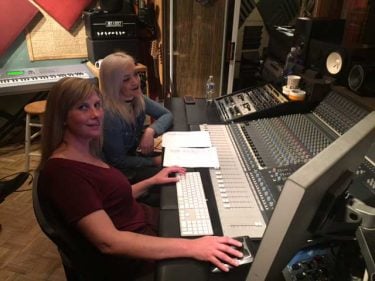 Recording Connection students Alexis Kirkbride and Dawnette Scolari getting some time in cleaning up a mix at ES Audio (Glendale, CA). Mentor Donny Baker had something to say about women in audio during a recent phone call. “I enjoy having females in. They seem to be more…they focus more, you know? They just seem to focus more and seem to be a little more intuitive as to how things get done. There’s this the whole stigma of dudes do this better but I disagree. I’d like to see more females get in and do well in the different programs.”
Shots from Film Connection student Santosh Neupane (San Francisco, CA) taken during the filming of two different Doucheaholics episodes. The comedic web series, worked on by several Film Connection students, premieres at Dances with Films, June 10th at the historic Chinese Theatre in Hollywood!
Recording Connection students Alexis Kirkbride and Dawnette Scolari getting some time in cleaning up a mix at ES Audio (Glendale, CA). Mentor Donny Baker had something to say about women in audio during a recent phone call. “I enjoy having females in. They seem to be more…they focus more, you know? They just seem to focus more and seem to be a little more intuitive as to how things get done. There’s this the whole stigma of dudes do this better but I disagree. I’d like to see more females get in and do well in the different programs.”
Shots from Film Connection student Santosh Neupane (San Francisco, CA) taken during the filming of two different Doucheaholics episodes. The comedic web series, worked on by several Film Connection students, premieres at Dances with Films, June 10th at the historic Chinese Theatre in Hollywood!
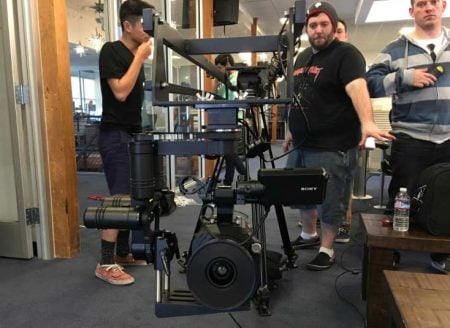
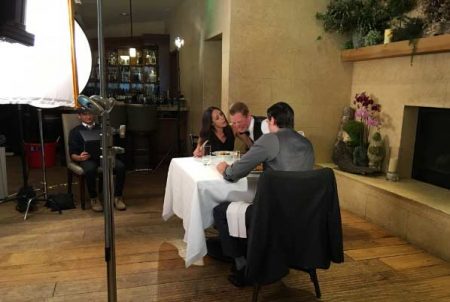
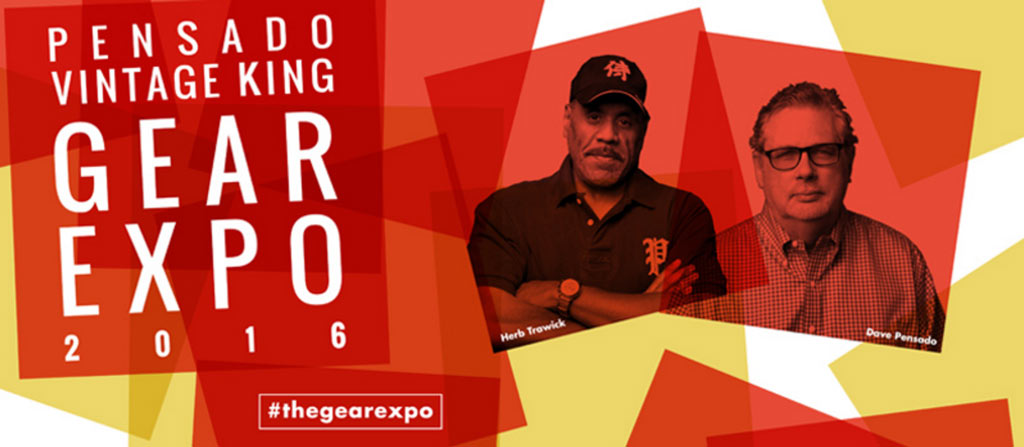 Pensado’s Place & Vintage King are partnering up yet again for another amazing gear and music-making expo! Attendees will get to demo gear, talk directly with manufacturers, watch the live interviews, mingle with celebrity guests, win prizes, and enjoy live music and great grub from local food trucks! Come and meet Dave Pensado and Herb Trawick of Pensado’s Place. Connect with L.A. music producers, audio engineers, musicians and other audio heads!
Register to attend at thegearexpo.com
Pensado’s Place & Vintage King are partnering up yet again for another amazing gear and music-making expo! Attendees will get to demo gear, talk directly with manufacturers, watch the live interviews, mingle with celebrity guests, win prizes, and enjoy live music and great grub from local food trucks! Come and meet Dave Pensado and Herb Trawick of Pensado’s Place. Connect with L.A. music producers, audio engineers, musicians and other audio heads!
Register to attend at thegearexpo.com
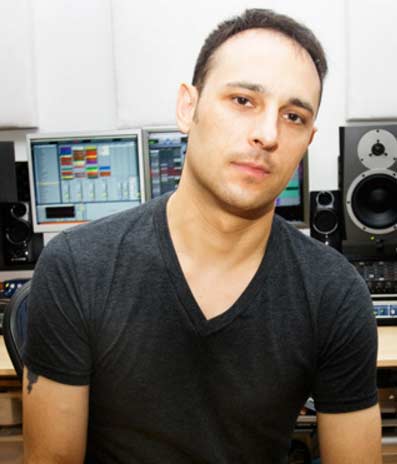
Recording Mentor Brian Jackson

RRFC is education upgraded for the 21st century.
Get the latest career advice, insider production tips, and more!
Please fill out the following information, and RRFC Admissions will contact you to discuss our program offerings:
Stay in the Loop: Subscribe for RRFC news & updates!
© 2025 Recording Radio Film Connection & CASA Schools. All Rights Reserved.


